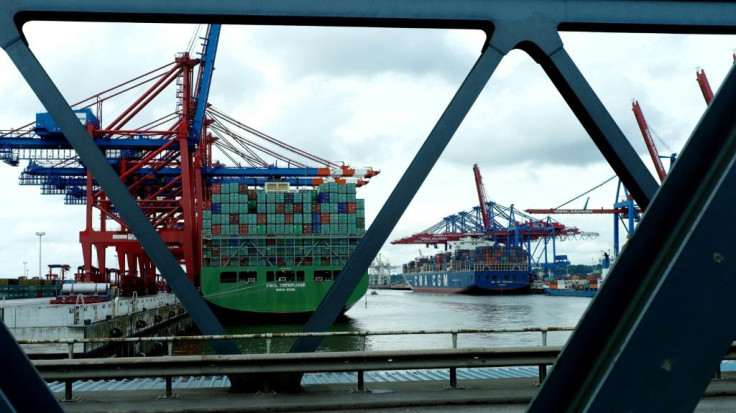Grim December For EU's Top Economies Caps Year Of Trade War
Industrial production fell back sharply in both Germany and France in December, official data showed Friday, closing off a year that saw trade conflicts above all weigh on the top EU economies.
Manufacturing output was down 3.5 percent month-on-month in Germany and 2.8 percent in its western neighbour, data from Germany's Destatis and France's Insee statistics authorities showed.
In Germany, "there are very few positive elements to find in the December industrial data," ING bank economist Carsten Brzeski said, adding that the figures point to Europe's top economy shrinking in the fourth quarter.
The US and China last month signed a "phase one" trade deal designed to ease commercial tensions, whose knock-on effects last year battered European manufacturers.
But in the final months of last year, uncertainty was still widespread about whether the pact would ever be agreed after months of tough negotiations and successive rounds of tit-for-tat tariffs.
Throughout 2019, trade fears were cited by institutions like the European Central Bank alongside Brexit and weakness in emerging economies as a top threat to growth in the euro single currency bloc.
German annual GDP growth slowed to 0.6 percent year-on-year according to preliminary data, from 1.5 percent in 2018, while France slowed from 1.7 to 1.2 percent.
Both countries suffered one quarter of shrinkage, Germany in April-June and France in October-December.

Given trade tensions have abated and a disruptive no-deal Brexit has been avoided for now, some analysts had anticipated a rebound for European manufacturers in the new year.
Such hopes were boosted by brightening "soft" indicators like business sentiment surveys in Germany.
But December's fall "contradicts the widely held view that Germany's manufacturing sector was beginning to recover at the end of last year," Capital Economics analyst Andrew Kenningham commented.
"We doubt this will be the last of the run of negative quarters," he added, pointing to a looming impact of the novel coronavirus outbreak in China on supply chains in Germany's vital car industry.
The impact of the commercial conflict could be seen in a separate German release of trade data for 2019 showing a shrinking surplus.
German media often fete the country as "export world champion" as goods sold abroad regularly outweigh imports by hundreds of billions of euros.
Last year, the surplus of exports over imports fell slightly, from 228 billion euros ($250 billion) to 224 billion.
At over 1.3 trillion euros, foreign sales added 0.8 percent, but imports grew almost twice as fast, adding 1.4 percent to top 1.1 trillion.
© Copyright AFP 2024. All rights reserved.











